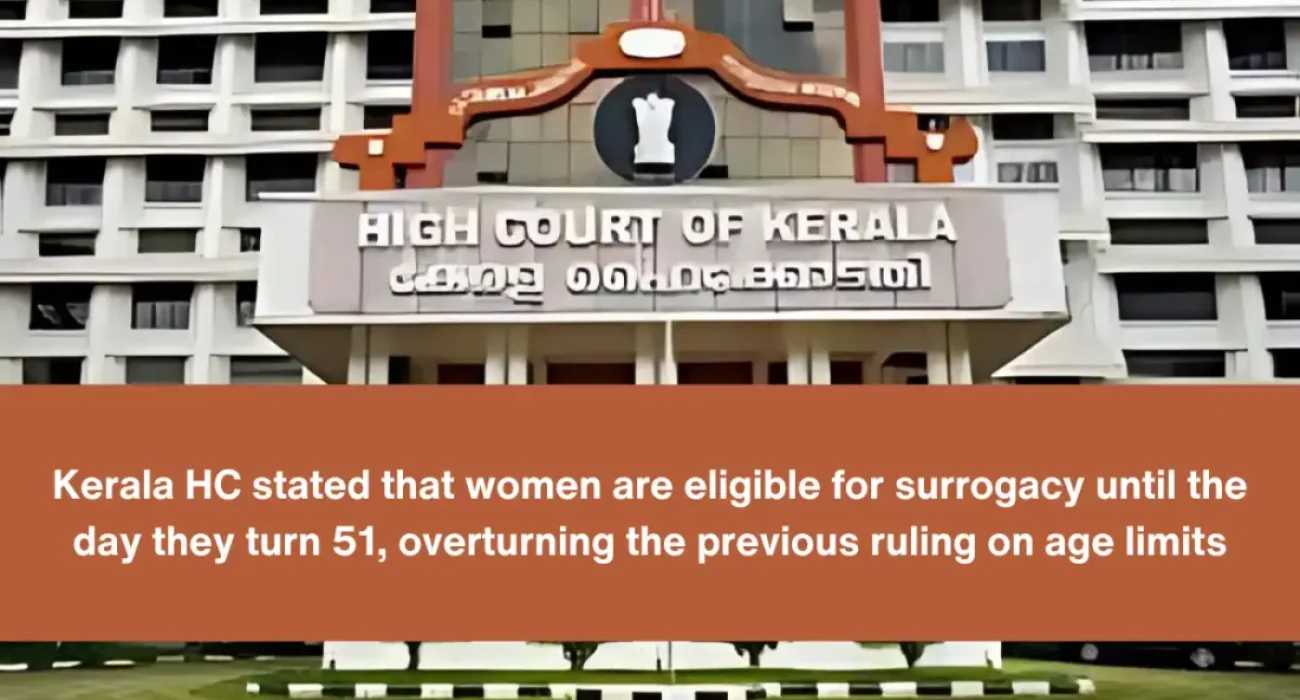

Table of Contents
ToggleThe case at hand concerns the eligibility criteria for surrogacy under the Surrogacy (Regulation) Act, 2021. The petitioners, a married couple, sought an eligibility certificate for surrogacy services. However, the intending woman was denied this certificate because her school admission records indicated that she had already attained 50 years of age. The eligibility for surrogacy, as per Section 4(iii)(c)(I) of the Surrogacy (Regulation) Act, 2021, mandates that the female partner must be between the ages of 23 and 50. The petitioners contended that the interpretation of the age limit should include the entire 50th year, and they argued that the denial of eligibility based on the fact that the woman was approaching her 51st birthday was an erroneous interpretation of the law.
The petitioner argued that the eligibility for surrogacy should extend throughout the 50th year, and that the woman should be eligible until the day before she turns 51. They relied on Section 9 of the General Clauses Act, 1897, to support their claim that when a statute refers to a range “to 50 years,” it includes the entire 50th year. The petitioners contended that the single bench’s ruling, which excluded eligibility from the day the woman turned 50, was incorrect. According to the petitioners, the statute was meant to allow eligibility until the last day of the 50th year, and thus, the woman should have been eligible for surrogacy services.
The respondents, representing the Union of India, argued that the eligibility criterion for surrogacy was meant to exclude women once they had reached 50 years of age. They relied on a strict interpretation of the law and contended that the use of “to” in the statute should not extend to include the 50th year entirely, but rather only up until the day before the 51st birthday. The respondents further pointed out that the case should be viewed in light of other statutory provisions, including the Indian Majority Act of 1875 and the Juvenile Justice (Care and Protection of Children) Act, 2015, which used similar language with different interpretations for age-related provisions.
The Kerala High Court, in its analysis, emphasized the importance of interpreting the statutory language in light of legislative intent and the specific context of surrogacy law. The Court observed that “Motherhood is a deeply personal and fundamental aspect of life,” and any interpretation that results in depriving a woman of this opportunity permanently must be approached with greater scrutiny. It also cited Section 9 of the General Clauses Act, 1897, noting that the use of “to” in a statute typically includes the last day in the series of days. The Court pointed out that the single judge’s reliance on unrelated statutes like the Indian Majority Act and the Juvenile Justice Act was misplaced, as these dealt with different issues and had different legislative purposes.
The Court also made a significant distinction between the language used in the Surrogacy (Regulation) Act and other related laws, such as the Assisted Reproductive Technology (ART) Act, which used “below the age of fifty years,” unlike the Surrogacy Act that used “to 50 years.” This distinction in language indicated a different legislative intent for the two forms of conception, with surrogacy focusing more on the emotional aspect of parenthood rather than the physical risks of medical procedures.
The Kerala High Court overturned the single judge’s decision, stating that the eligibility for surrogacy should extend throughout the 50th year. The Court concluded that the language in Section 4(iii)(c)(I) of the Surrogacy (Regulation) Act, 2021, clearly meant that a woman could avail surrogacy services until the day before she turned 51, as the use of “to” in the statute indicated that the age of 50 was included within the eligible range.
The Court held: “The eligibility of the intending woman to avail of surrogacy services extends throughout the 50th year, ceasing on the day the intending woman turns 51.” Consequently, the writ appeal was allowed, and the impugned judgment was set aside. The Court directed the respondents to issue the eligibility certificate to the petitioners within one week. The eligibility certificate would remain valid until the woman turned 51, thus providing the petitioners the opportunity to pursue surrogacy as per the law.
Credits: Deeksha Rai
IAW resources
Browse our help directory